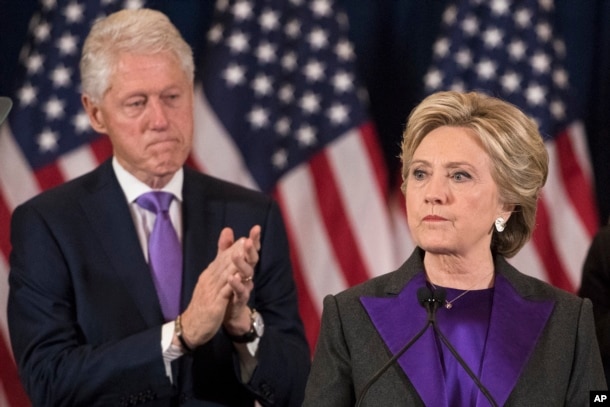Going where the denial is thickest–in the news media
As a rape survivor myself*, I believe Juanita Broaddrick. I listened to Ms. Broaddrick when she was interviewed on Dateline NBC back in 1999. I listened carefully to everything she said, and–as a lifelong registered Democrat myself–I believe her with all my heart. Her accusation was that Bill Clinton assaulted her, in Arkansas, years earlier, when he was State Attorney General and widely believed to be a rising political star and a local political wunderkind. This was a rape allegation–different in degree from the several sexual harassment allegations also leveled against Clinton, and in 2016 against Donald Trump, and very different from Clinton’s compulsive philandering. Broaddrick accused Clinton of forcible rape, on national television–network, not cable–credibly, with detail, not concealing or denying her own errors or her anger at Clinton. Yet after the Clintons left the White House, Broaddrick’s name was scarcely mentioned in what are often called the ‘elite’ media. As the highly respected late columnist William Blackberry commented, it was mystifying that a credible accusation of such magnitude could be passed over. This while The Washington Post deemed that President Clinton’s affair with an intern warranted a special pull-out section titled “Presidency in Crisis”( temporarily), and Republicans in the House were voting to impeach Clinton.
It is an unanswered question, now, how many people even know who Juanita Broaddrick is. Many younger people who voted in 2016 would not have recognized her name in 2015. The fact that she became part of the public discourse largely through some rightwing outlets and Donald Trump’s presidential campaign is a source of regret for me personally.
The Democrats who should have acknowledged her story dropped the ball. So did the GOP, of course. Neither major party moved constructively to address the issue of rape, in the 1990s or under the George W. Bush administration. President Obama and Vice President Biden did more than any previous White House, addressing sexual assault on college campuses and problems such as the backlog of unprocessed rape kits in the criminal justice system. But much remains to be done.
Our top media outlets did far too little. Millions of words have been written about the 2016 election, with more to come; hundreds of opinion polls were taken, countless models predicted the outcome–wrongly–but so far as I know, no major media outlet polled the public on awareness of Juanita Broaddrick’s accusation against Clinton, or even on her name recognition.
A couple of points here. First, rape is a difficult topic, grim and painful, and difficult things by definition are harder to deal with than easy things. Fewer people will deal well with something difficult than with something easy, including people in the news media. Second, as mentioned above, few people in large media outlets tried to deal with the Broaddrick story well. This gap is not consistent with a belief in Clinton’s innocence, which would have emphasized accuracy. It sweeps an issue under the rug instead of addressing it.
Third, a media focus on horse-race politics shed too little light on rape as an issue. Thus if Broaddrick’s name was mentioned at all, it was usually through the prism of possible effect on the campaign of Hillary Clinton for president. Those media personalities are now consumed with the question of ‘what went wrong’ with the 2016 election, and what went wrong with their predictions.

Conceding defeat in 2016
Democrats are also addressing the question of ‘what went wrong’, especially since the Clinton campaign is not telling.
And the Clintons are of course being faulted for not telling. On this narrow point, I can help them. This is a question they will not answer fully, because they cannot.
‘What went wrong’ is that the wife of a rapist ran for the White House.
Unthinkable? One would think so. But it wasn’t. There was no one to advise the Clintons, effectively, that Clinton should not run. A deadly simple timeline resulted. The Clinton team decided to try the run and accumulated all the money not going to the GOP. Meanwhile, Republicans salivating at the prospect of running against ‘Hillary’ lined up, and money or no money, the GOP field was self-destructively large. Trump was the cue ball. Wham. He broke the rack on the table wide apart. And while Trump was breaking things open on the Republican side, the Clintons and their media allies were shutting out every better candidate on the Democratic side–Vice President Biden first, before the primary season even began; then Senator Bernie Sanders in the primaries.
So on one side Trump benefited from the arithmetic of the field, and on the other Clinton, with no essential constituency or platform except narrow self-interest, shut out the field.
Net result: 1) A small cadre of Democratic insiders decided to paste in a nominee before any votes were cast, and 2) they picked the worst possible candidate. The Clintons with their greed problem, their old-time insider status, their treatment-of-women problem, their ties to Wall Street, etc., etc., etc., were the worst possible choice to run against Donald Trump. Not that they knew enough to take Trump seriously, any more than they knew enough to take Sanders seriously. (So much for ‘electable’.) So much for the high-paid expertise with which they theoretically surrounded themselves.
I believe that even the quiet Lincoln Chafee would have done better than Clinton. Joe Biden would have crushed Trump. Bernie Sanders would have crushed Trump. But every political and/or media insider was convinced that Clinton was a shoo-in. And not content with being convinced themselves, they exerted pressures huge to tiny, broad and narrow, to exclude any contrary voice or dissenting opinion.
On a small scale, I saw a little of the action even near my own neighborhood. (A realistic pre-election poll might have taken into account how many millions of Americans witnessed unbecoming behavior by individuals who thought they were going to have the upper hand come Election Day.)
By the weekend before the election, I for one was wondering about the much-touted ‘landslide’. I was not very surprised at the outcome but was disappointed that Russ Feingold lost the Wisconsin senate race. Knowing the Clintons, Feingold’s appeal is probably one of the reasons they neglected Wisconsin. Much of their joint public career for forty years has consisted of playing keep-away, and much of their appeal has been to media insiders who play keep-away themselves. (A realistic post-election investigation might try to examine how the Clintons went about rewarding or enticing favorable media coverage.) No wonder they were so surprised: they shut out the very people they should have been listening to.
These issues connected to the Clintons and to the Democratic Party establishment extend to the news media which confidently predicted a big-time Clinton victory. For now, space and time constraints preclude my going into the media issues. Suffice it to say that we are now hearing self-serving commentators mutually affirming their moral superiority to the unwashed masses. Largely these are the people who went along with Bush’s invasion of Iraq. As with sexual assault, it saddens me to see Iraq swept under the rug. On top of the loss of blood and treasure, in all that (temporary) emphasis on sexual assault during the campaign, no one mentioned that rape follows war.
One last point: owing to the experience I suffered, I felt pummeled throughout the 2016 election cycle–beginning with the smug, complacent assertions of Clinton’s being the inevitable nominee, in 2015 and before. The reaction is difficult to write about, even now. Several media theories about election 2016 have addressed the wrongness of the opinion polls–silent Trump voters, distrust of pollsters, faulty polling methods. I have another theory to add: that I am not the only one in my position. Few Americans would have wanted to share an intensely private perspective on Bill Clinton with pollsters. Even fewer would have wanted to volunteer their private opinion–for example, believing Juanita Broaddrick–with pollsters, without being asked to do so.
And no pollsters asked.
*This was a childhood incident. I was in elementary school at the time, an undersized fifth-grader walking alone through a big park in Houston, to a Brownies meeting. The perpetrator was not someone I knew, and the police never caught him. But at least there was none of that nonsense about not believing me. Everyone knew I could not have made it up, and anyway I was taken to the ER of the local charity hospital–Ben Taub–for an exam.













